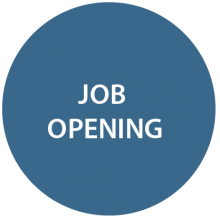CLARIN2023
Call for Abstracts Still Open
The call for extended abstracts for the CLARIN Annual Conference 2023 (CLARIN2023) is still open. We welcome submissions until 14 April 2023.
Call for Nominations: Steven Krauwer Award 2023
The Steven Krauwer Awards are given in recognition of outstanding contributions towards CLARIN goals in the following areas: language resource building, tool or service development, exemplary use cases, user involvement, knowledge sharing and socio-economic impact. Awards will be given in the categories of CLARIN Early Career Researcher and CLARIN Achievement.
Deadline for nominations: 28 April 2023
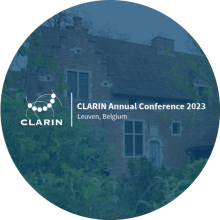
Tour de CLARIN: Poland
In this latest Tour de CLARIN entry, we showcase CLARIN-PL. The consortium provides an update about its national set-up, highlights a noteworthy tool for the comparison of the linguistic features of corpora, CompCorp, and introduces its helpdesk. In the interview, researcher Agnieszka Hess illustrates her use of the CLARIN-PL tools TOPIC and TermoPL for her work on parliamentary discourse.
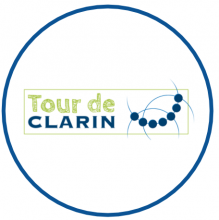
BLOGS & REPORTS
A Recap of CLARIN Café: Exploring the Potential of Digital Tools for Learning
On 3 March, this CLARIN Café offered academics, researchers and teaching assistants insights into designing their own online training material on a topic of their choice. In addition, participants explored various digital tools that instructors can use to make their online courses more interactive and engaging. All materials, including the recording of the Café, as well as the slides and template for designing a Lifelong Learning Course, created by speaker Isabell Grundschober, are now available.
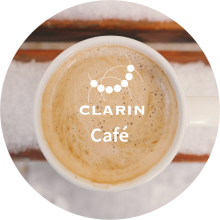
TRAINING AND EDUCATION
Training Resource of the Month: Applied Language Technology
This learning resource by Tuomo Hiippala (University of Helsinki) provides humanities scholars with a basic understanding of language technology and shows them how to apply it to research in the humanities. The training consists of a two-course module, combining theory with practical activities using the Python programming language. The course materials build on various resources distributed through CLARIN, such as Universal Dependencies corpora, and demonstrate how learners can engage with these resources through models provided by Python libraries, such as spaCy and Stanza. By the end of the course, learners will be able to load and manipulate corpora hosted by CLARIN into Python. The materials are also accompanied by short YouTube videos with step-by-step instructions.
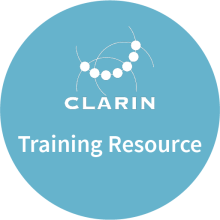
Digital Humanities Course Registry: What’s New
This month, we showcase three new courses added by Aarhus University in Denmark:
- MA Programme in Digital Technologies in the Humanities (for both regular and exchange students)
- BA Programme in Programming for the Humanities (for both regular and exchange students)
- CodeRefinery workshops to help researchers improve their digital skills to facilitate open and reproducible research.
The DH Course Registry is a discovery platform of courses, programmes and continuing education training in the Digital Humanities, maintained by DARIAH and CLARIN. If you would like to promote your DH-related activities via the registry, you can create an account here.
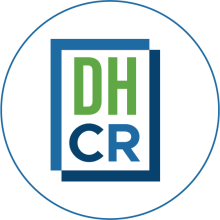
WATCH THIS!
CLARIN2022 Keynote: Ariane Nabeth-Halber – 100 Years of Speech Recognition
In her keynote at CLARIN2022, Ariane Nabeth-Halber (ViaDialog) explains that revolutions in speech technology are always related to shifts in data, algorithms and infrastructures. Latest developments in self-supervised learning and large pretrained models are casting a new light on the idea of ‘talking machines’ and attracting huge interest from the media and the wider public. Nabeth-Halber showcases real-life speech industry examples, reviews the changes that current advances are starting to induce in the speech industry landscape, and discusses the main challenges that still need to be addressed.
EVENTS & CALLS
CLARIN Café: Do Chatbots Dream of Copyright? Copyright in AI-Generated Language Data
11 April 2023, 14:00-16:00 (CET), virtual event
The release of Chat GPT, Bing Chat, and, more recently, GPT-4, has brought large language models and generative chatbots into the public eye. While these developments may not be surprising to most CLARIN researchers, there is an increased interest in AI-generated language data and human-machine interaction corpora. The exploration of generative chatbots provides endless opportunities for research, with new and surprising use cases emerging nearly daily. Many are left wondering about the legal implications of these developments.
This CLARIN Café will focus specifically on the question of whether AI-generated texts can—and should—be protected by copyright. We invite you to join us and our distinguished guests for a productive discussion!

TwinTalks 4 Workshop at DH2023
10 July 2023, 9:00 - 12:30 (CEST), Graz, Austria
This joint initiative by CLARIN and DARIAH will form part of the DH 2023 Conference: Collaboration and Opportunity and follows up on previous successful TwinTalks workshops.
The main objective of the workshop is to develop a better understanding of the dynamics when researchers, teachers and/or professionals with different – but often overlapping – areas of competence engage in remote collaboration to address humanities research questions. The workshop will also explore how the education and training of humanities scholars, cultural heritage professionals and technical experts can help to make remote collaboration across disciplines more efficient, effective, innovative, and inclusive for all participants.
The organisers invite submissions reporting on all aspects and stages of engaging in remote collaborative research and teaching in DH, including the obstacles encountered and solutions found. Position papers on the role of research infrastructures in facilitating remote collaboration in DH are also welcome.
Deadline for submissions: 15 May 2023
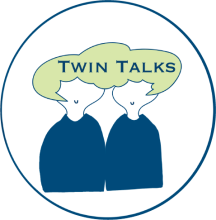
1st SSH Open Cluster Assembly
24 April 2023, 14:00-17:00 (CET), virtual event
The SSHOC Governing Board invites all the participants in the SSHOC project, as well as various partner organisations in the SSH domain, to the SSH Open Cluster’s first Assembly. This first Assembly will be open to all interested parties and presents a good opportunity to discuss the next steps that have been agreed by the Governing Board, as well as ways of getting involved in the SSHOC Cluster and strengthening the SSH community in Europe.
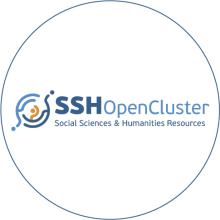
2nd International Workshop on Automatic Translation for Signed and Spoken Languages
Machine Translation ( ) is a core technique for reducing language barriers for spoken languages. When it comes to the deaf and hard-of-hearing communities, the complexity of the task to automatically translate between sign and/or spoken languages, requires a multidisciplinary approach. The AT4SSL workshop aims to open a (guided) discussion between participants about current challenges, innovations and future developments related to the automatic translation between sign and spoken languages, and brings together researchers, practitioners, interpreters and innovators working in related fields.
Deadline for submissions: 31 March 2023
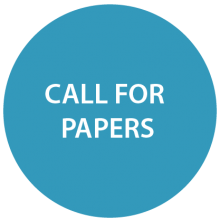
Registration Now Open: ExploreSalon 2023 – Unveil Hidden Stories from the Past
22 - 26 May 2023, Vienna, Austria
When people interact, they leave traces: letters, diaries, chronicles, plaques, and other written records have preserved memories about people. When these records are digitised, they open up countless opportunities for exploration. The ExploreSalon at the ACDH-CH in Vienna offers a space to delve into those digitised memories, seek hidden stories, discuss ideas, share findings and gain innovative insights into storytelling with data. Participants can choose from a number of curated biographical, spatial and temporal datasets with a focus on Vienna around 1900 to play with, suggest other datasets or combine with their own. The event offers on-site and online expert consultancy, an opportunity for peer feedback and for sharing experiences.

AItLA2023: Multimodal Communication: Contexts, Practices, Resources
24 - 26 May 2023, Siena, Italy
Human communication is inherently multimodal: it involves multiple sensory channels and is based on different modes of expression. Co-funded by CLARIN, the 23rd International Congress of the Italian Association of Applied Linguistics (AltLa) focuses on multimodal communication, including contexts, practices and resources. The organisers invite analytical accounts of multimodal discourse or interaction that explore the relations between different modes, examine multimodal artefacts, and document status differences between language and other sign systems within specific communities.
Early bird registration closes 30 April 2023
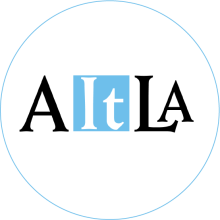
Helsinki Digital Humanities Hackathon (#DHH2023)
24 May - 2 June 2023, Helsinki, Finland
This CLARIN and DARIAH summer school presents an opportunity to experience an interdisciplinary research project from start to finish. The hackathon invites researchers and students from computer science, data science, as well as the social sciences and humanities, to collaboratively work on complex real-life problems. This year, the DHH will have four thematic areas of interest, with one or more groups per topic: Letters, Interactional Dynamics of Online Discussion, Early Modern, and Parliament.
Deadline for applications: 14 April 2023
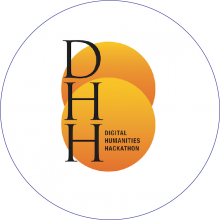
Workshop Discourse Studies and Linguistic Data Science (DiSLiDaS 2023)
12-13 September 2023, Vienna, Austria
The fourth biennial conference on Language, Data and Knowledge (LDK 2023) and Cost Action CA18209 NexusLinguarum are pleased to announce the second edition of the DiSLiDaS 2023 workshop. The workshop builds on the topics discussed during DiSLiDaS 2022 and highlights current research advances in discourse analysis and representation in the context of multilinguality from a linguistic and computational perspective. The organisers invite submissions addressing challenges such as interoperability, linguistic linked open data (LLOD), and language processing and analysis.
Deadline for submissions: 19 May 2023
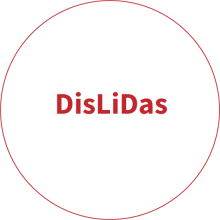
EOSC FAIR-IMPACT Open Calls for Support
In recent years, a number of tools, solutions and approaches have been developed to help different stakeholders implement the FAIR principles. Many of these have been developed through European Commission supported activities, such as the regional and thematic INFRAEOSC projects, and international initiatives such as the Research Data Alliance. It can be challenging to know which tools and/or approaches to use for different purposes, or how to implement them most effectively. The FAIR-IMPACT project will provide a set of clearly defined support actions to show successful applicants how to use specific tools/methods/approaches in order to become more FAIR-enabling and actively contribute to the European Open Science Cloud.
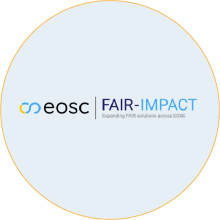
JOB OPENINGS
Post-doctoral Position in Corpus Linguistics
Leibniz Institute for the German Language (IDS), Mannheim, Germany
The Leibniz Institute for the German Language (IDS) in Mannheim is the leading international scientific centre for the documentation and research of the German language, as well as its present use and recent history. The advertised post-doctoral position in corpus linguistics at the IDS, as part of a committed team and in the context of many national and international collaborations, involves the testing of new methods and technologies and their productive used on the German reference corpus DeReKo, one of the world's largest linguistic corpora. The successful applicant will focus on the development of methodologies for gaining linguistic insights from very large corpora, as well as language models and tools for analysis and visualisation. Experience with programming, dealing with large corpora and proficiency in Unix and version control tools are required.
Deadline for applications: 30 April 2023
